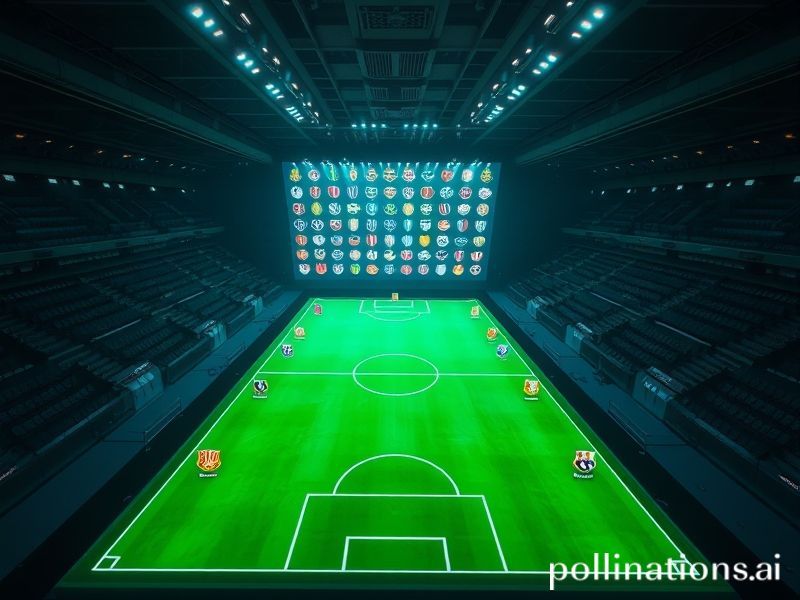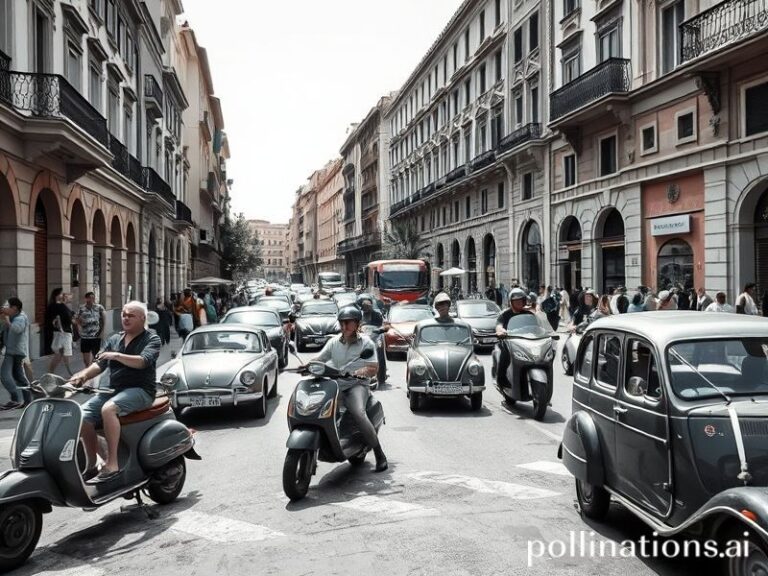Champions League Standings: The Global Ledger Where Hope and Revenue Balance Out
The Champions League standings have always been a kind of global stock exchange for hope—except the market never closes, the brokers are all teenagers in club-branded pajamas, and the dividends are measured in memes rather than money. Still, every autumn the same ritual unfolds: continents rearrange their body clocks to watch 32 clubs from 16 UEFA nations chase a silver cup that looks suspiciously like an overpriced cocktail shaker. And while the rest of the planet argues about tariffs, viruses, or which dictator just bought a new yacht, the real geopolitics is being negotiated in 90-minute increments on neatly striped grass.
Take Group F, the designated “Group of Death” by pundits who apparently enjoy metaphors cribbed from low-budget war films. Paris Saint-Germain, Borussia Dortmund, AC Milan, and Newcastle United are locked in a four-way tango that resembles a particularly dysfunctional NATO summit. Each club has enough attacking talent to invade a small country, yet none can quite defend the privilege. The standings shuffle every matchday like diplomatic alliances after a particularly awkward state dinner. One week, Kylian Mbappé teleports through defenses like a tax exile through EU regulations; the next, a 19-year-old Dane named Oscar who still lives with his parents scores a 94th-minute equalizer and becomes a trending hashtag in Jakarta. Balance of power, 2023 edition: fragile, fluorescent-lit, and sponsored by a cryptocurrency exchange no one’s grandmother can pronounce.
Meanwhile, in the quieter corners of the bracket, the standings reveal the perpetual undercard of global capitalism. Union Berlin—representing the part of Germany that still remembers the taste of rationed bananas—currently sit on zero points and a goal difference that reads like a failed hedge-fund report. Yet their traveling fans continue to out-sing hedge-fund managers in the hospitality suites, proving that existential dread sounds better in four-four time. Farther south, Galatasaray’s shock victory over Manchester United prompted Turkish social media to declare a national holiday, complete with obligatory jokes about the lira performing better than United’s back line. Somewhere in an Ankara café, an economics professor is already writing a paper linking macroeconomic sentiment to Champions League upsets. He’ll probably get tenure.
Of course, the standings also serve as an annual reminder that the old imperial centers still control the narrative. English clubs currently monopolize the top spots across multiple groups, which means the BBC can run 400-word explainers on why Jude Bellingham’s shoelaces matter to the future of Western civilization. Meanwhile, a Serbian broadcaster spends five minutes dissecting how Red Star Belgrade’s draw in the 83rd minute “restores dignity to the Balkans,” conveniently ignoring that the same dignity evaporates the moment anyone checks the group table. Such is the soft power of spreadsheets: they look neutral until you realize whose Excel macros wrote them.
And then there’s the looming specter of the knockout rounds—an exquisite torture device designed to make entire nations synchronize their heartbreak. If history is any guide, Bayern Munich will march onward with the mechanical grace of a Swiss bank transfer, while Barcelona contrive to exit on away goals because someone in accounting misfiled the concept of defending. The global implications? A sudden spike in Catalan Twitter meltdowns, a 3% dip in German beer exports when Dortmund inevitably implode, and—if Real Madrid somehow miss out—an emergency summit in Brussels to investigate whether the laws of physics have been breached.
When the final whistle blows in December and the standings crystallize into brackets, the world will briefly pretend the outcome matters more than the quarterly earnings call of the kit manufacturer. Diplomats will quote goals scored in press briefings, and some unfortunate intern at the UN will have to prepare a memo titled “Impact of Erling Haaland’s Hamstring on Global Supply Chains.” And then, like clockwork, we’ll all pretend to be shocked when the same half-dozen clubs reach the semifinals. It’s the circle of late-stage sporting life: predictable, profitable, and just unpredictable enough to keep the gambling apps in business.
In the end, the Champions League standings are less a reflection of footballing merit than a quarterly audit of who’s winning the attention economy. The numbers change, the flags rotate, but the ledger always balances: hope on one side, merchandising revenue on the other. And somewhere in the fine print, a footnote reminds us that the only thing truly eliminated is our ability to look away.







